JAJSVO0 November 2024 LMR51603
PRODUCTION DATA
- 1
- 1 特長
- 2 アプリケーション
- 3 概要
- 4 Device Comparison Table
- 5 Pin Configuration and Functions
- 6 Specifications
- 7 Detailed Description
-
8 Application and Implementation
- 8.1 Application Information
- 8.2
Typical Application
- 8.2.1 Design Requirements
- 8.2.2
Detailed Design Procedure
- 8.2.2.1 Custom Design With WEBENCH® Tools
- 8.2.2.2 Output Voltage Setpoint
- 8.2.2.3 Switching Frequency
- 8.2.2.4 Inductor Selection
- 8.2.2.5 Output Capacitor Selection
- 8.2.2.6 Input Capacitor Selection
- 8.2.2.7 Bootstrap Capacitor
- 8.2.2.8 Undervoltage Lockout Setpoint
- 8.2.2.9 Replacing Non-Sync Buck Converter
- 8.2.3 Application Curves
- 8.3 Power Supply Recommendations
- 8.4 Layout
- 9 Device and Documentation Support
- 10Revision History
- 11Mechanical, Packaging, and Orderable Information
6.6 Typical Characteristics
VIN = 24V, fSW= 400kHz, TA = 25°C, unless otherwise specified.
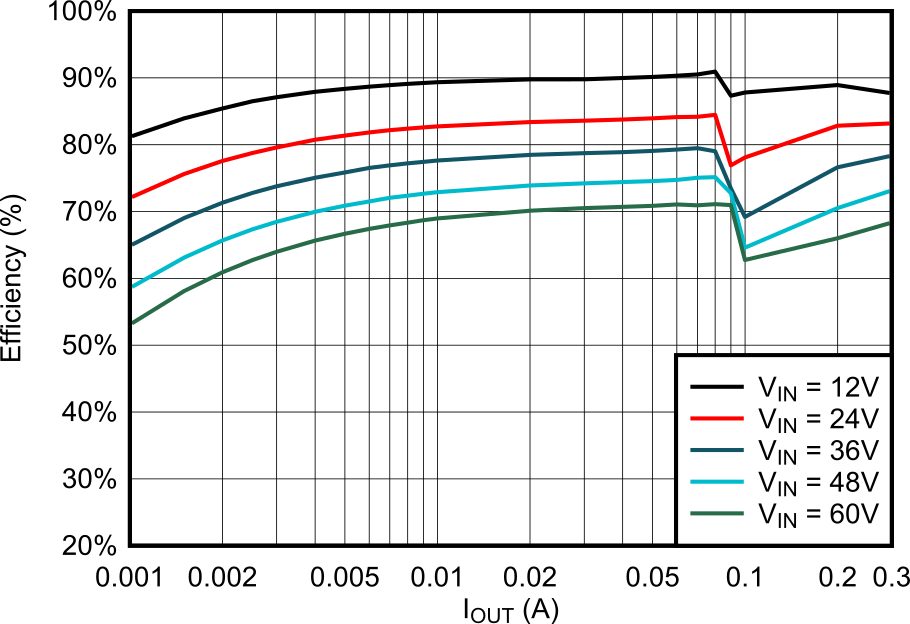
| fSW = 1100kHz | VOUT = 5V | LMR51603Y |
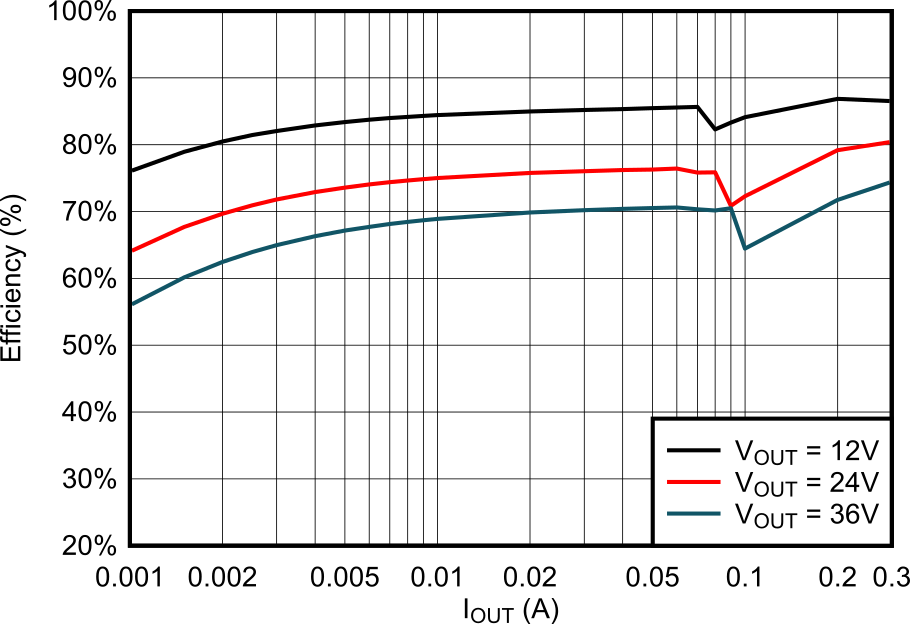
| fSW = 1100kHz | VOUT = 3.3V | LMR51603Y |
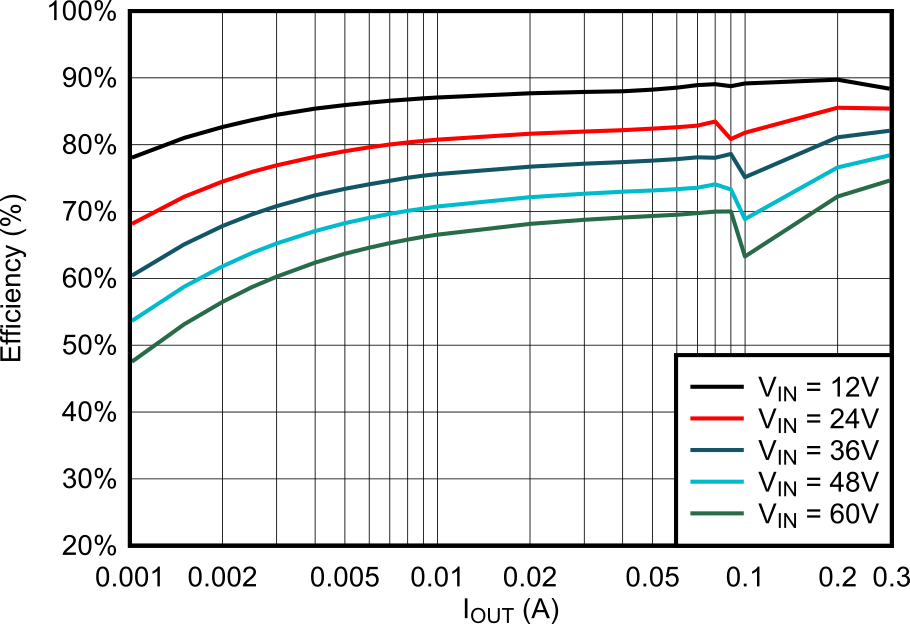
| fSW = 400kHz | VOUT = 3.3V | LMR51603X |
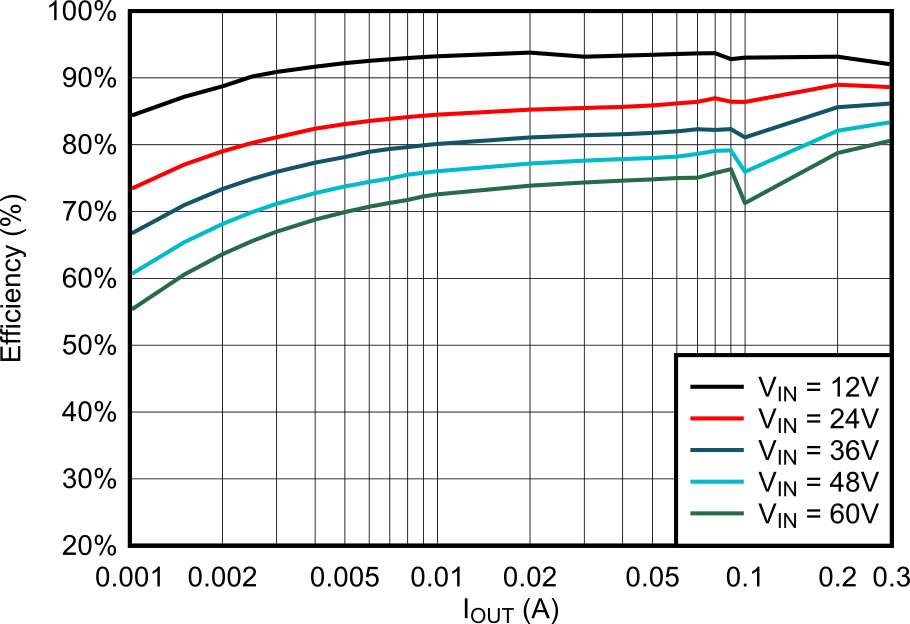
| fSW = 400kHz | VOUT = 5V | LMR51603X |
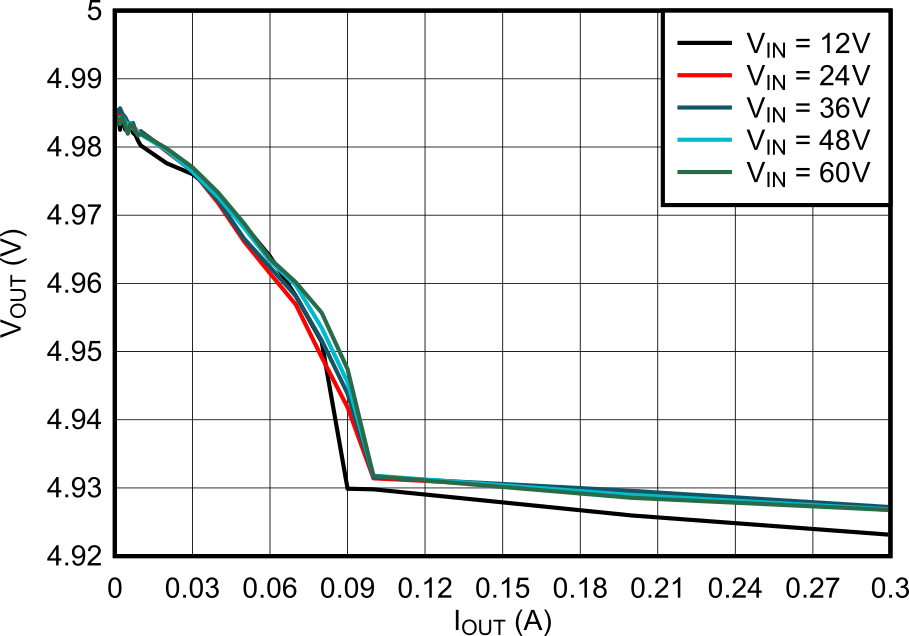
| fSW = 400kHz | VOUT = 5V | LMR51603X |
 Figure 6-11 VIN Quiescent Current vs Temperature
Figure 6-11 VIN Quiescent Current vs Temperature Figure 6-13 Reference Voltage vs Temperature
Figure 6-13 Reference Voltage vs Temperature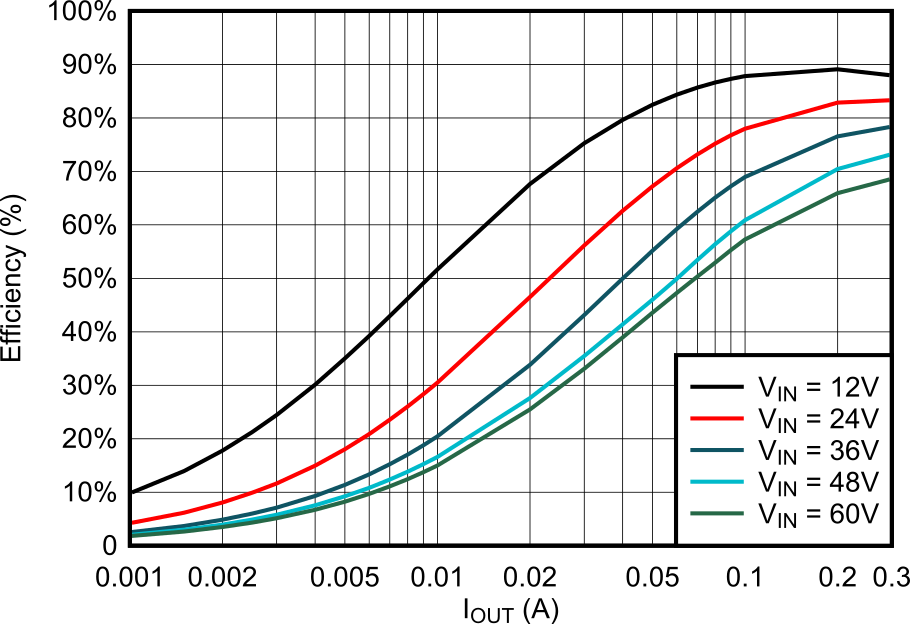
| fSW =1100kHz | VOUT = 5V | LMR51603YF |
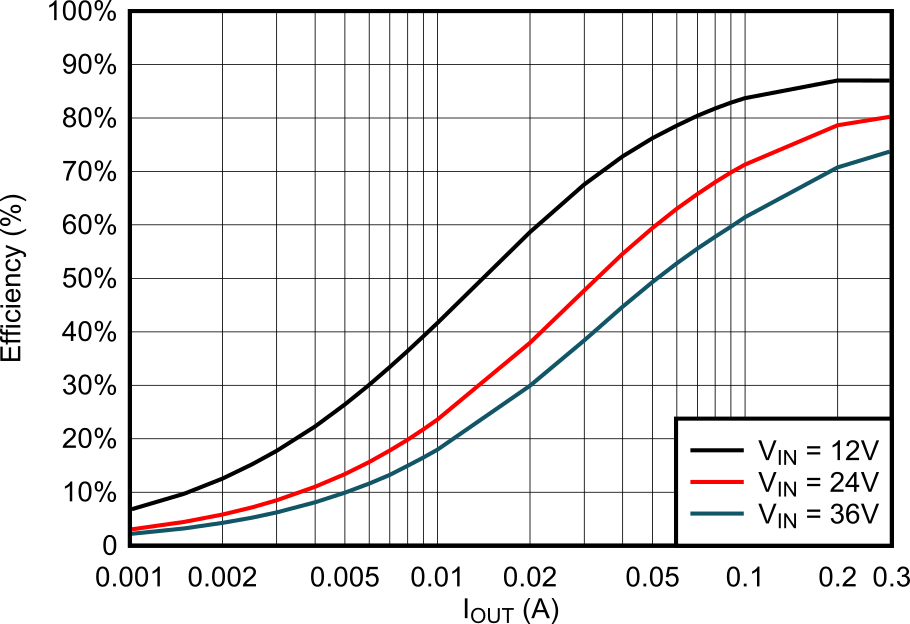
| fSW =1100kHz | VOUT = 3.3V | LMR51603YF |
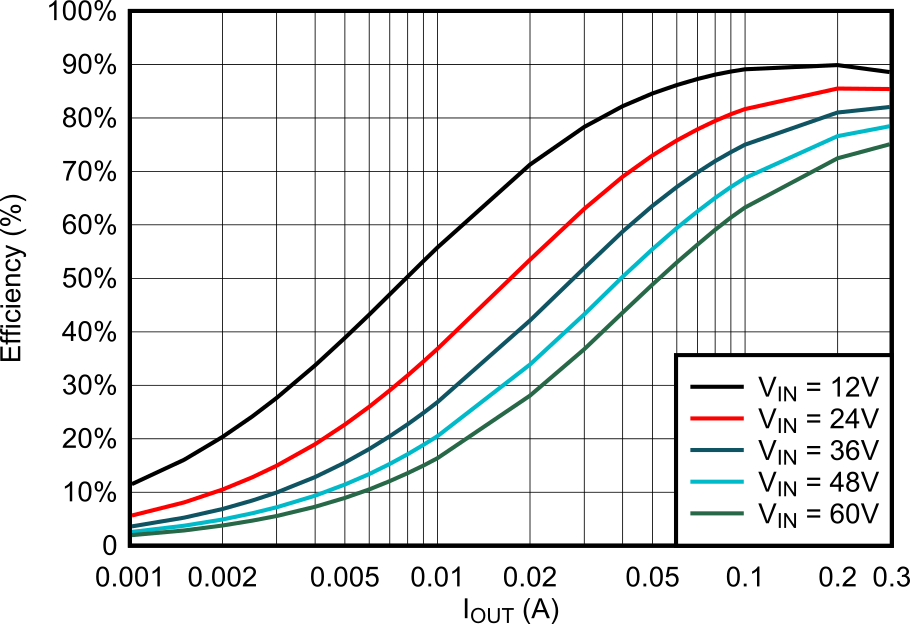
| fSW = 400kHz | VOUT = 3.3V | LMR51603XF |
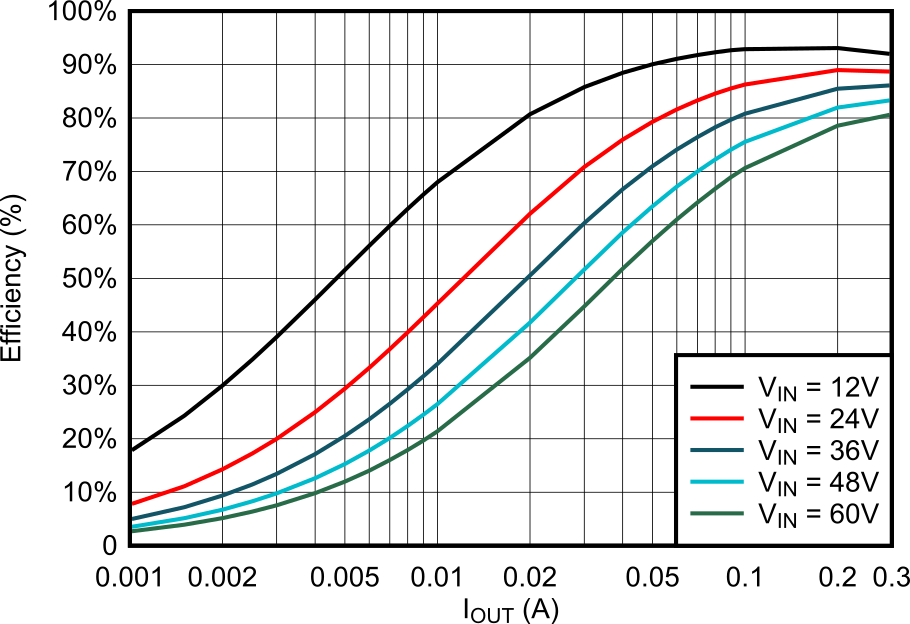
| fSW = 400kHz | VOUT = 5V | LMR51603XF |
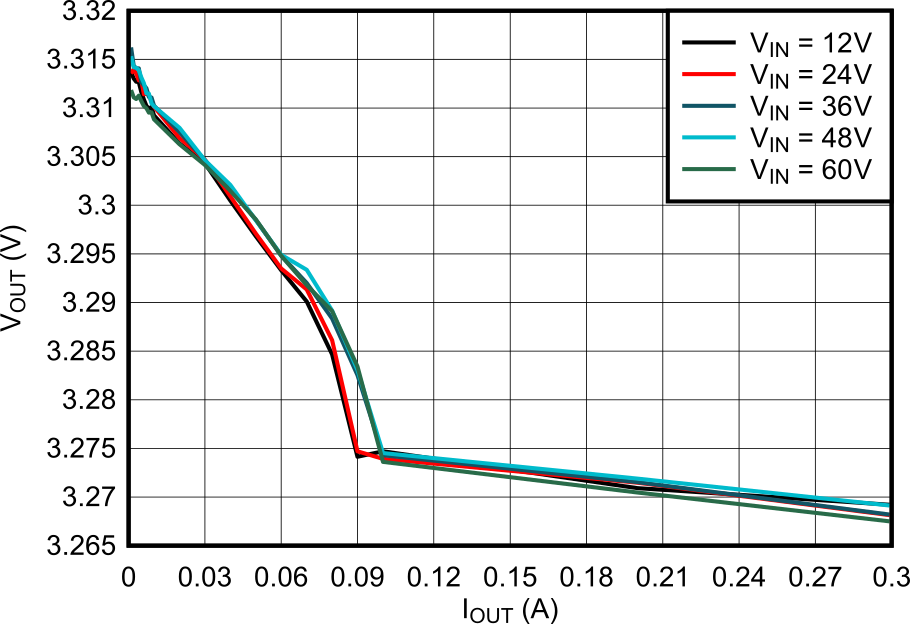
| fSW = 400kHz | VOUT = 3.3V | LMR51603X |
 Figure 6-12 VIN UVLO vs Temperature
Figure 6-12 VIN UVLO vs Temperature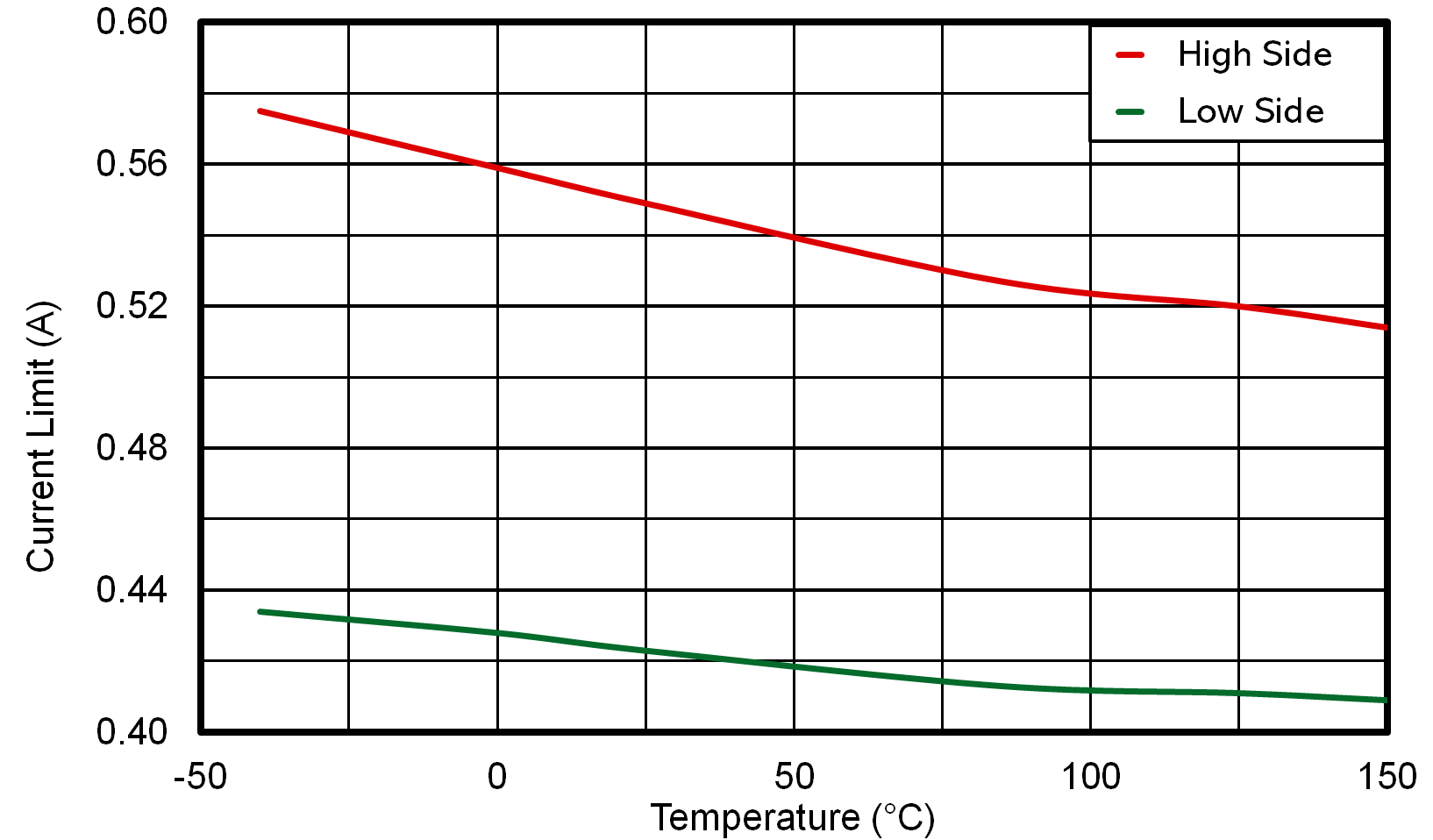 Figure 6-14 HS and LS Current Limit vs Temperature
Figure 6-14 HS and LS Current Limit vs Temperature